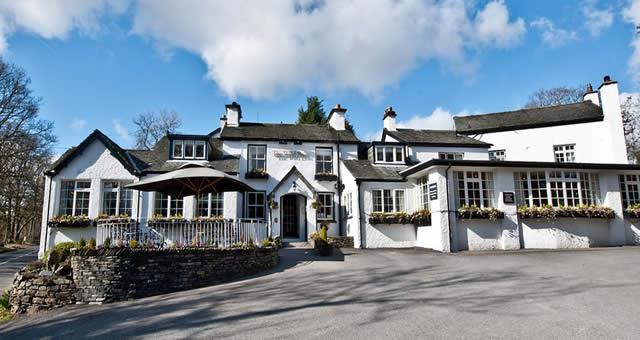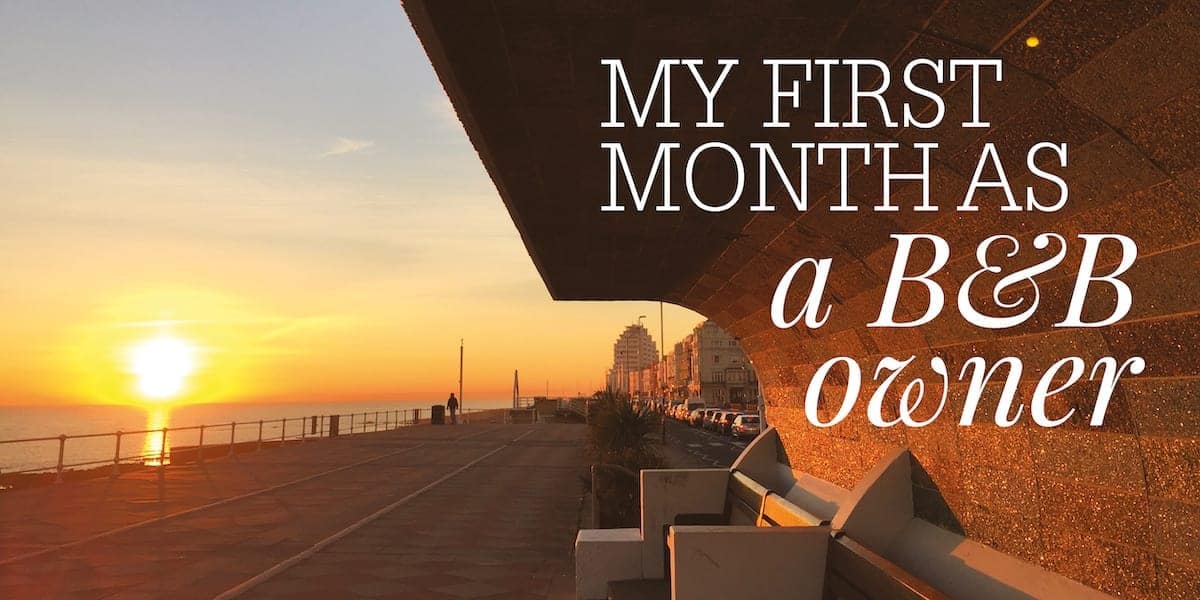
DEPOSITS, REVIEWS AND BOOKING.COM….
As ever, B.com has topped the list of postings on BedPosts in the last month, with over 200 posts. Members feel that B.com is not being helpful to accommodation providers (APs) and that their deliberate opaqueness during the booking process makes things worse. A member recently suggested –
“When using the booking.com site as a guest how can you find out what deposit, terms and conditions there are? Try it with your own place. After much clicking around I eventually got as far as…
‘Cancellation/prepayment: Cancellation and prepayment policies vary according to room type. Please check the room conditions when selecting your room above.’ I can’t see anywhere to check room conditions. The link just takes you back to the booking page. I tried again and eventually found these, and others:
‘manage your booking online to request a check-in time outside of the standard hours.’
What are the check-in and check-out times of a hotel? How do I get more information about the room or hotel facilities?
I want to check out after the stated check-out time. What should I do?
I am still none the wiser about deposits. Is it just me?”
The member was enlightened by another, who posted “Under the options is ‘special conditions’ and a question mark. Click on the question mark and you get the deposit, cancellation information. A bit long winded but that’s where it is.”
So, although hidden away, the T&Cs of the APs are there for the guest, should the guest choose to search for and read them. However, on our side of the fence things are still unclear. A recent complaint was –
“Last year we introduced a room-only, payment in full rate which has proved very popular. Just noticed today on a new booking that B.com have decided without telling us that all rooms sold at this rate THEY charge the customer in full and then hold the money until the guest checks in. I have rang B.com and asked them why and their response was ALL pre-pay rates have to be charged this way in future, I’ve told them that’s not acceptable to us and told them to delete the rate from their system and cancel the booking . They were not happy; now they have to find their customer a new hotel.”
This comment produced a fair debate as many did not see that this change, which involves B.com taking payment direct from the guest and then supplying a ‘virtual credit card’ number after the guest’s stay for the AP to take payment, was affecting them – yet! This may be a test of something new, yet again. One said that this would obviously affect his cash-flow. Another was vehemently opposed –
“If B.com has set this up, what happens if the guest cancels? Does your T&C still apply, or will B.com not give you access to the money because they did not stay, and give the “free cancellation” they are constantly advertising? The free cancellation is the one thing many of our guests say is the only reason they use B.com. I do enlighten them, but it is a drop in the ocean compared to the constant advertising and promotion of free cancellation. Perhaps B.com is planning not to fall foul of the advertising standards people by ensuring that “free cancellation” is under their control.”
It does seem possible that B.com is trialling yet another new booking condition/option. I’d ask them, but they wouldn’t answer! Things were put quite well by this comment –
“B.com does not offer ‘FREE CANCELLATION’ they offer ‘FREE CANCELLATION……………………on most rooms’. Well mine isn’t one of them.
They also claim the following, which will be true for all rooms, just no comment on the cost involved – “Make changes to your booking, anytime You can make changes, send a request or cancel in just a few clicks” All legal and true, yet misleading.”
Reviews are also an occasional source of irritation as shown by this post –
“We reply to every review. When someone leaves a review and you reply, you can see your response where it says, see property response and it has a link. What I do object to with the B.com review system is that a guest can choose whether or not the AP can reply to what they have put. We found two such reviews when we first opened as a business, just a low score and no comments. I could not reply to the said guests and ask them why they gave us a low score. In other words it seems we can’t defend ourselves.”
A reply to this put it quite forcefully –
“Yep and being a previous guest myself on B.com, their system does give the guest the option of whether they want a response from the AP. Personally, I don’t think this is at all fair as if the guest has something to gripe about, then the AP should be given the opportunity to reply and iron out any discrepancy. However the guest should do their griping with the AP directly, preferably before they leave the premises before it gets to the review on a public site stage. But we all know that sadly, this is not always the case. This really bugs me, same with TA.”
….. AND NOW TRIPADVISOR
TA, of course, has been primarily a review site in the past. This comment was posted recently –
“TA Reviews have really dropped off here. As Booking.com market dominance grows I reckon most B.com guests leave their review on B.com rather than TA. It’s easier for a start and few people will write more than one review of an experience. TA will have to reinvent itself as a booking site first and a review site second if it is to continue to keep its revenue up. It has traditionally been a media sales machine attracting advertising revenue with a bit of booking on the side. They will have to up their booking game. That will be difficult because it will offend some of the main contributors to their income, Booking.com and Expedia who pay for the links out to their booking engines.”
The feeling of another member with regard to her own active group was “those who have used TA in any way for booking say: NO to Business Listing; NO to the Booking Button: but they DO use TripConnect. That is a pay per and is more cost effective.”
The concern from another was expressed regarding reviews and returning to B.com –
“This is a bit of a worry. If accreditation is dead then what is there to replace it. I had always assumed TA would be that replacement (although wholly inadequate). Does this mean B.com win again?” A worry indeed!
Members have worried about TA since this very first post on the topic in June 2009 nearly eight years ago –
“I do think Trip Advisor and the likes are becoming more essential to accommodation providers (probably more so than the Quality System). The problem is that customers trust them and they are therefore important to us. I personally never take any notice of good reviews on any of these sites. I only take note of the less good reviews. If there is a consistency in these that is ‘important to me’ I take note. I don’t think the general users see them in this way. They see them as authoritative.
The big problem we have found with these reviews is that they set unacceptably high expectations for our other guests. Our philosophy has always been that we try and set expectations lower than we can deliver. People are therefore happy (in theory). On our web site and any discussions we have with guests we are paranoid about this. TripAdvisor is a major pain in this area. We get glowing comments about how great we are and how brilliant the accommodation is etc. Unfortunately this is setting high expectations which on at least two occasions have been a problem to us.
One guest stated that they had specifically booked because of our TripAdvisor reviews and couldn’t understand why they were so glowing. They were happy about the comments on our facilities, location and gardens but their accommodation was below her expectations. I pointed out that she was in the cheapest room we have and the reviewers may not have stayed in her cottage (I think in fact about two of the reviewers had). I then showed her around a few of the rooms (all far more expensive) and she was over the moon and stated that she now understood where the TA comments came from. I asked her (so I am not totally corrupt) if she could put a review on TA about her experience to make sure other people didn’t have the same problem. She declined stating that she wouldn’t like to harm our business!”
Even back then, the subject of fake reviews was around, shown by this member’s reaction to a competitor’s reviews –
“I sent an email to TA last week saying how suspicious it looked and encouraged them to look into it. I don’t suppose they will do anything about it though because more website visitors for them means more sent to online booking pages so more commission in their pockets. All they said to me was that they take such allegations seriously and lots of other things were taken into consideration when ordering the reviews by popularity – they mentioned are equally as good reviews on other websites, the guaranteed genuine ones like from Booking.com, Laterooms and Active Hotels.”
(As part of the history lesson, Active Hotels was then a popular – 10% commission – and successful UK booking site, but taken over by B.com)
Times were indeed simpler back then, as demonstrated by this post –
“Last year some of my walker guests asked if I knew about TA but I had never heard of it, and they said they would start a page for us. I haven’t got many yet, 5 or 6, but those I have are genuine!”
That will indeed have been true. I recall finding that we had a TA page with comments on it, it was all new, and news, to us! We were naive and simple about such new-fangled technology back in 2009 as this response shows –
“I just think inviting public opinion like that is asking for a scolding! Well, I’ll be brave and have a go and see how we get on! We once got a howler of a review from a Laterooms customer that had no less than twenty three complaints in it (surely a record?!) including a complaint that one of the bulbs went in the en suite whilst they were in there (how can I help that?!) and that their room door locked with a key… I’d love to know a viable alternative for a B&B! It was hilarious but the guest had left without paying and we had to charge their card after their departure so Laterooms rejected the review as (clearly!) it was sour grapes. Ah guests, you have to love ’em!”
Looking Ahead – It seems inevitable that recent trends will continue. The large agencies will thrive and small B&Bs will continue to fall in number. In my home city of York, at least 14 B&Bs have reverted to domestic or buy-to-let use in the past few years while new hotels continue to open. It has been stated that Airbnb has 100m users worldwide but it is dwarfed by the 350m claimed for Tripadvisor Rentals, a business similar to Air but one that has grown by acquiring the likes of Holiday Lettings, Flipkey and HouseTrip. Such companies claim to invest in the cities where they are starting to monopolise lettings. In fact, they build no hotels and act as mere gatekeepers by using software to extract a toll from travellers. They are classed as the sharing economy! Airbnb now also claims to be part of the circular economy – this relatively new term is generally applied to business that makes recycling, reusing and cutting waste a central ethos. Thus Airbnb, which ‘provides’ accommodation without the need to build new hotels, flaunts their ‘green’ credentials!
We cannot, in reality, change what is happening but we can keep ourselves informed as to events. One good way to do that is through the postings of your peers on the BedPosts forum at www.bedposts.org.uk. It’s free to join and use, plus you can request and control BedPosts reviews on your own website. So don’t be alone, be part of the conversation.
Roy McGregor
For BedPosts Business Club and Forum



